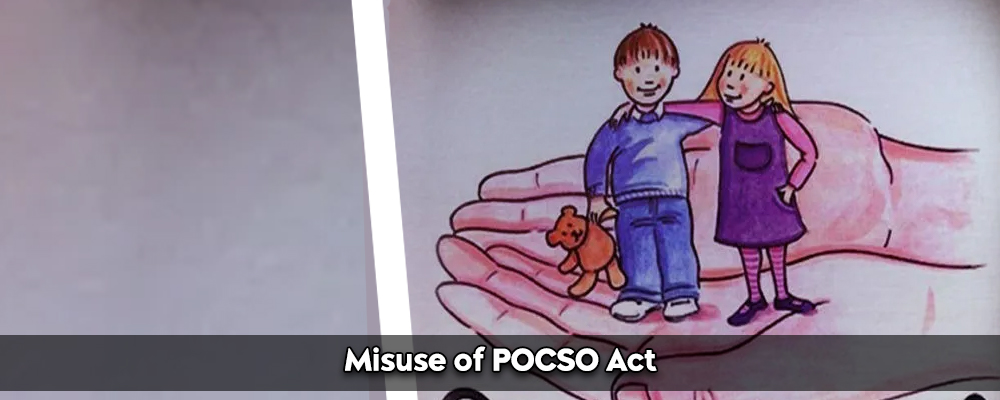The Protection of Children from Sexual Offences Act, 2012, was passed on July 16, 2012, although it was only put into effect on November 14, 2012, Children’s Day. This Act was the result of India’s acceptance of the UN Convention on the Rights of the Child in 1992. This Act creates a strong legal framework to protect kids from sexual harassment, sexual assault, and pornography. It also establishes special courts, allows for quick and time-bound trials, and protects kids’ interests throughout the whole legal process. According to Section 2(1)(d) of the Act, everyone under the age of 18 is covered by this Act.
The Union Government announced the Protection of Children from Sexual Offences Rules, 2020, and they became effective on March 9, 2020. These regulations made it possible to put into effect the 2012 revisions to the Protection of Children from Sexual Offences Act, which toughened up the punishments for child abuse. According to the National Crime Record Bureau’s report from 2021, the accused was known to the minor victim in 96% of the cases brought under the POCSO Act of 2012, and in 48.66% of the instances, the accused was either a friend or a romantic partner.
Need A Legal Advice
The internet is not a lawyer and neither are you. Talk to a real lawyer about your legal issue

The POCSO Act, 2012, states that no hospital in India may refuse to treat and examine a victim of child sexual abuse. The Criminal Law Amendment Act’s Section 23 made sure of this by adding Section 357C to the 1973 Code of Criminal Procedure. This clause mandates that all hospitals must offer free first aid or medical care to a victim of a sexual crime. According to Indian Penal Code Section 166B, no public or private hospital may refuse to treat a rape victim and must do so swiftly and without charge. On the Special Court’s instruction, the District Legal Services Authority will make arrangements to cover the expense of care in certain situations.
2012 POCSO Act Misuse
- People are frequently found to be involved in fictitious cases under the POCSO Act because of land disputes, marriage disputes, personal grudges, political motives, or for personal gain to humiliate the accused by holding them in jail for an extended length of time. A girl under the age of 18 may be persuaded by her family to file a false complaint about a personal disagreement with someone with whom her family has animosity.
- Due to the strict restrictions of the POCSO Act, judges seldom give bail, and if the case is false, the mental health and trauma of the accused individuals worsen. As a result, those who have been detained on suspicion of a crime must spend a significant amount of time in jail, often until the case has been tried. The accused has already endured a great deal of hardship before being granted bail or being found not guilty.
- According to Section 33(8) of the POCSO Act, 2012, the special court may, in addition to the sentence, order payment of compensation to the child for injuries to his or her bodily or mental health as well as for the kid’s rehabilitation. To obtain the compensation money, some members of the young child’s family file fictitious complaints against wealthy and deserving defendants.
- The police regularly manipulate the use of statements under Section 161 CrPC to implicate someone in the case or to exclude the name of an accused person from the case. For this reason, the statements of some people who were not at all witnesses to the case were recorded in a way that either favored the accused or implicated innocent people by leaving or adding their names as accused in the statement.
Case Law
In the case of Ajay Yadav vs. State Of U.P. And 3 Others, The Allahabad High Court stated that it is regrettable that “women are filing false FIRs under the POCSO/SC-ST Act, using it as a “weapon to extract money” from the state in the majority of cases,” and that this practice has to cease. The Court made a point of noting that these fake FIRs are filed only to steal money from the state and that this damages the reputation of innocent people in society.
The offender approached the court for anticipatory release in the case, and his attorney stated that the victim had not provided a convincing justification for the lengthy delay in filing the FIR. It was argued that the accused was unjustly accused of the crime at hand to harass him, even though the occurrence described in the contested FIR never really occurred.
The court ordered that criminal proceedings under Section 344 CrPC against the victim be started after investigating if it is shown that the FIR filed by the victim is fake. The Court further ordered that any money paid to the victim by the State must likewise be recouped from the victim.
Lead India provides free legal advice, legal services, and online internet data. The best thing to do in this circumstance is to talk to a lawyer and ask a legal question.





 Talk to a Lawyer
Talk to a Lawyer